Jason Dungee
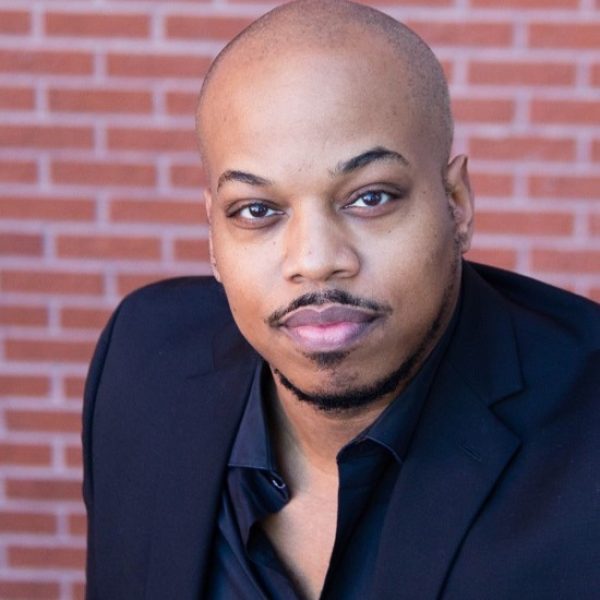
What makes a choir
Assistant Professor of Music and Director of Choral Activities
“A mentor and pastor of mine used to say ‘people don’t care how much you know until they know how much you care.’ I really try to carry that along with me in terms of the core of my teaching being purposeful, not just getting a concert ready.”
Dr. Jason Dungee is a professor regarded for his incredible ability to not only teach music to large ensembles within UNC Charlotte’s Department of Music, but to teach his students in a way that leaves a long lasting positive impact on them, professionally and personally. Any student in the Department of Music will waste no time before speaking praises for Dungee’s teaching. This is all due to the insightful and generous practices he executes in creating his classroom environment.
“When you get older and you’re doing something you did when you’re younger, a lot of times what we’ll do is we’ll take some of those things we’ve learned and bring them with us, and a lot of times its negative,” Dungee explains. “A lot of cases are us bringing along the trauma we may have experienced and putting that onto our current students. I’ve really been very intentional about not doing that, about not just taking on the harder edged parts of my experience.”
Dungee has had a connection with music since childhood, being involved in band from the 5th grade onward and becoming entranced by the world of choir and conducting during college. He earned degrees from the University of Arizona, Westminster Choir College, and Hampton University and taught high school chorus in Virginia (pictured below) before moving to higher education.
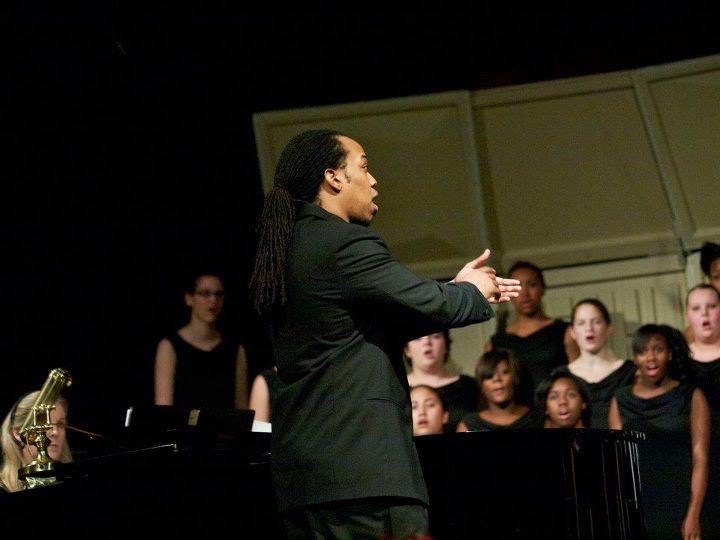
Dungee says that his ultimate goal of conducting college choirs would not have been achieved without all the work he has put into teaching, and what teaching has taught him. “After teaching high school for about nine years, I realized that teaching was the most important component of the thing [conducting]. At first I was using teaching as a means to conduct, but what actually ended up happening was me realizing that teaching was the thing that was going to be the reason why I was a good conductor.”
Dungee has had a wide range of conducting experiences. He was the conductor for HBO’s The Game of Thrones Experience two years in a row. He has conducted sold-out concerts for the Charleston Gospel Choir and was a Conductor Fellow at the 16th Varna International Music Academy in Varna, Bulgaria. He was also one of the conductors for the first-ever HBCU Tribute Choir for the Southern Division American Choral Directors Association Conference. And he also occasionally steps into the role of singer, most recently as the tenor soloist in the premiere of Andre Thomas’s Mass at Carnegie Hall (pictured below).
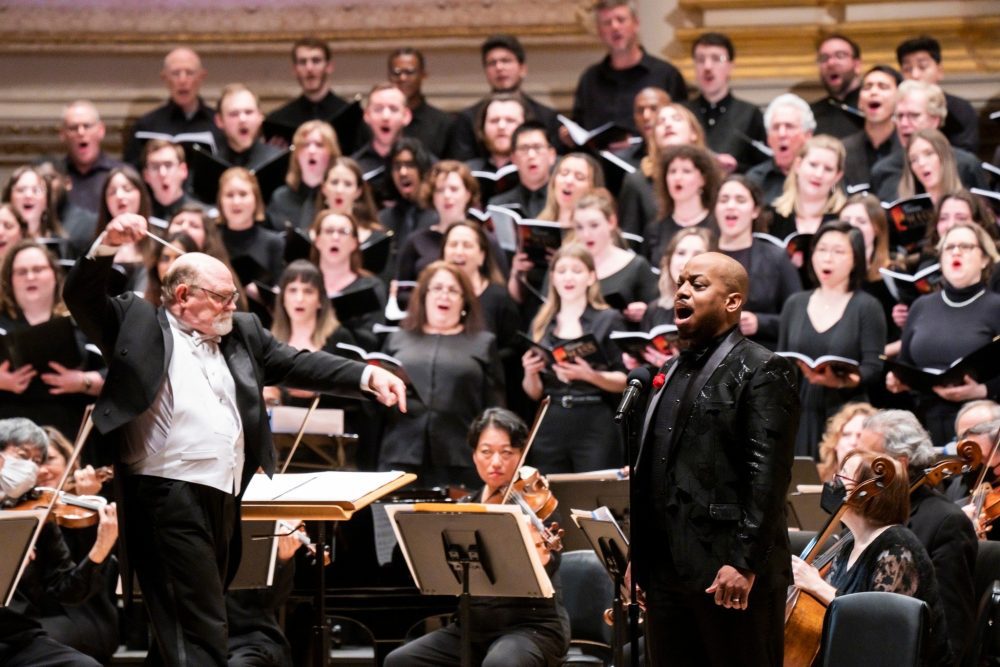
Photo by Chris Lee.
In 2020, Dungee’s article, “A Pedagogy for Living: Applying Restorative, Anti-Racist Pedagogy to the Choral Classroom,” was published in The Choral Journal, the international journal of the American Choral Directors Association. The article examines the state of choral education and suggests how educators can work to improve the classroom experience by introducing ideas of anti-racism into the curriculum.
“There is a portion of this that just comes naturally just because of my existence as a Black man in America, but also as one of the two full time faculty in the music department that are Black people – myself and Dr. (Sequina) DuBose,” he explains. “A lot of times teachers will say, ‘Oh, I don’t want to bring politics into the classroom.’ The second you get a student who identifies as something other than male, white, cisgender, Christian – as soon as you go outside of that box, you’ve now brought politics into the classroom. The reason why is because the existence of everybody outside of those identities has been political. Everybody else has had to fight for some sort of equal footing.”
In his own classroom, Dungee works to create what he defines as a “liberal space,” an environment where students can exist as they are and express themselves and their identities while being acknowledged and appreciated, no matter what their identity may be. Students are encouraged to participate in conversations that allow them to think more critically about the pieces they sing, learn more about the history of the music in their program, and connect further with their peers through understanding their differences. The effect of this is to hopefully create ensembles that are both informed of the historical and modern contexts of the music and also open to reflection and growth on a personal and group level.
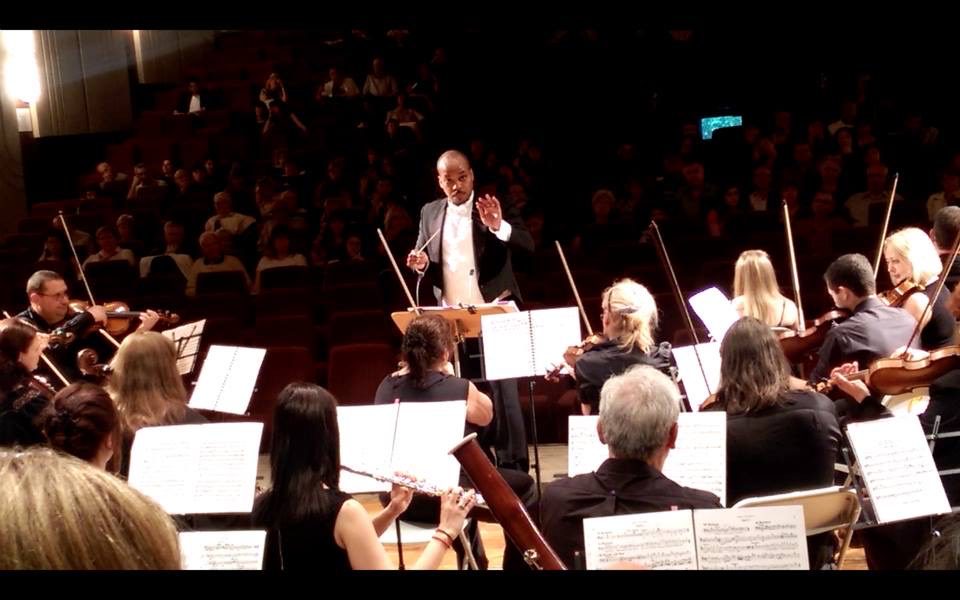
The commitment to inclusion has to be sincere, he says. “One of the things I was getting at in my article was if your students do not feel as though you live a life of inclusion, then it doesn’t matter if you program a concert of all Black composers. If they think you’re racist, it doesn’t matter. The whole point of you programing that has been lost.”
When it comes to the future of choral music, Dr. Dungee looks forward with hope and acknowledges the power music holds to change society for the good.
“The music world is this shining example of what the rest of the world could be if they just looked. What is a choir if not 50, 20, 10 people from different backgrounds, different experiences, different perspectives – for those different groups of people coming together and deciding to create something beautiful. That is a model for how communities should work.”
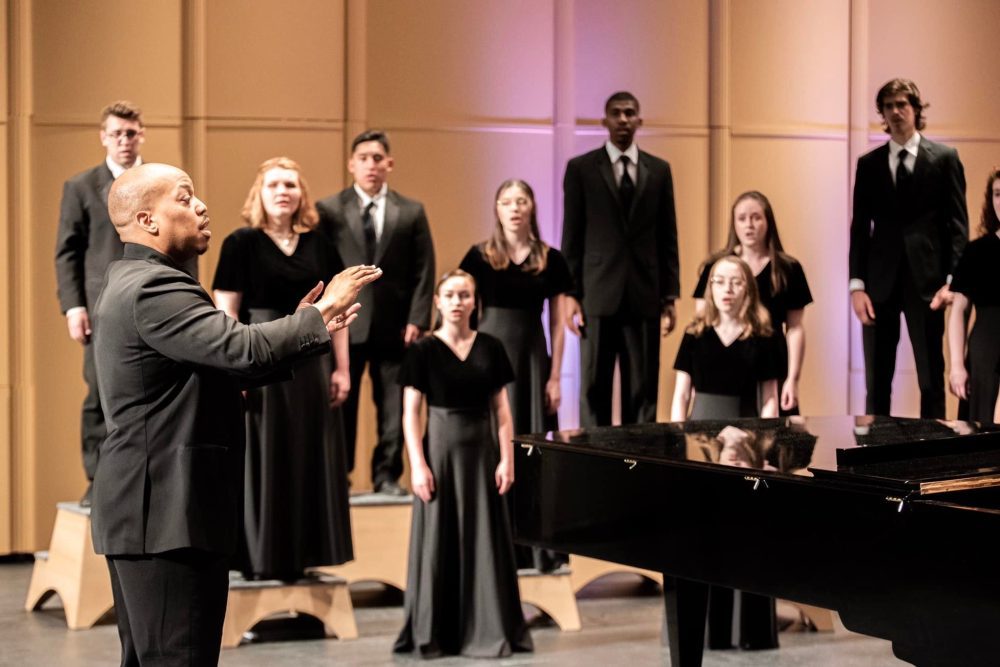
Dungee with the University Chorale in front of Robinson Hall for the Performing Arts.
By Rayden Leeder